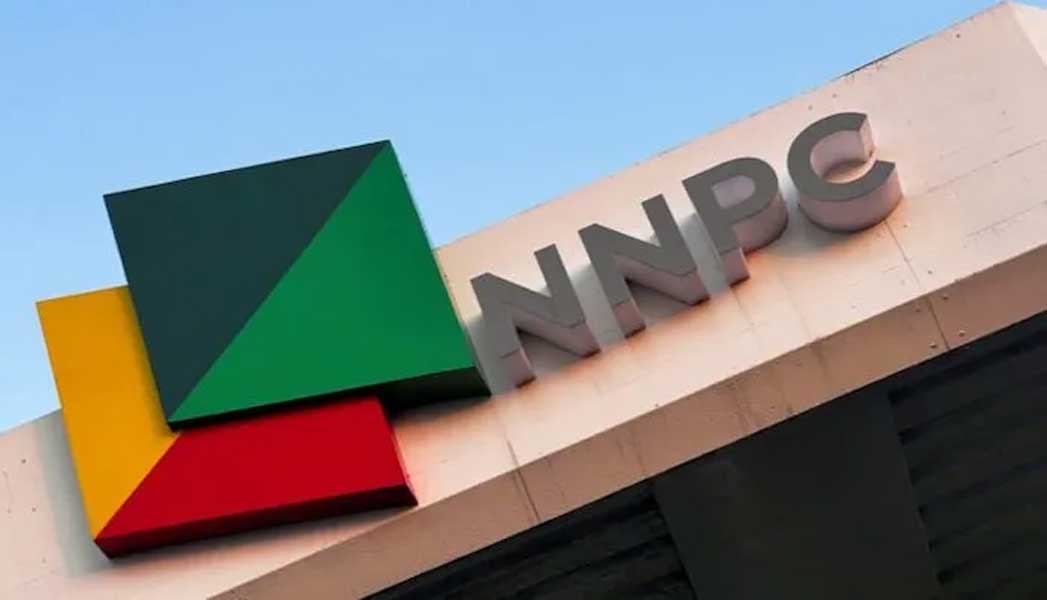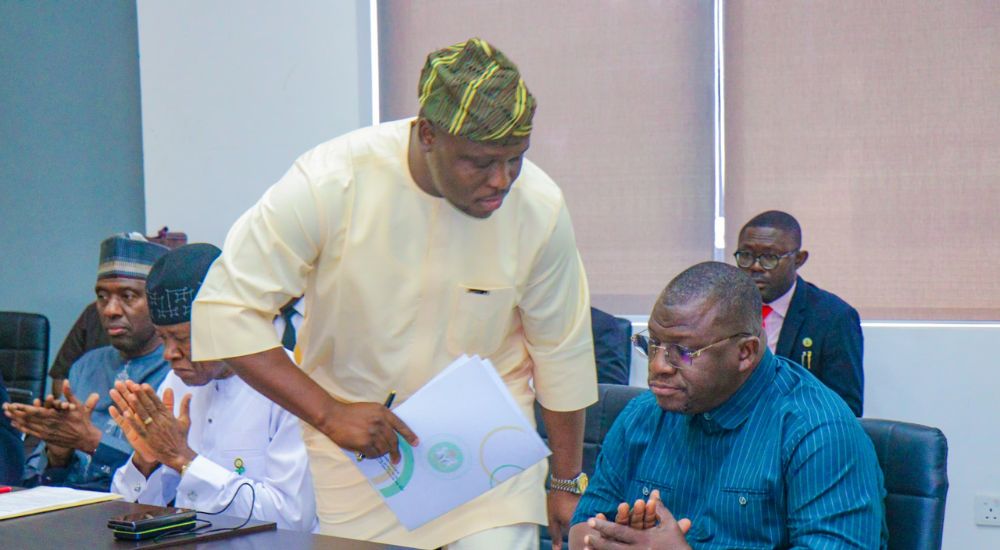Tinubu’s Performance Sparks Mixed Views In South-South

President Bola Tinubu’s performance has sparked mixed reactions in the South-South region as security and economy top some residents’ wish list while others scored him high in agriculture and education.
The respondents from Rivers, Cross River and Akwa Ibom spoke on the president’s achievements in the past two years.
In Rivers, Prof. Anthony Onoja, a Professor of Agricultural Economics, University of Port Harcourt (UNIPORT), identified the removal of petrol subsidy and the floating of the naira as two major actions shaping Tinubu’s administration.
He observed that while the administration has implemented bold economic reforms, the outcomes have been mixed.
“Although the floating of the naira initially triggered volatility and a sharp rise in the exchange rate against the dollar, some relative stabilisation has been observed in recent months.
“However, the removal of petrol subsidy inflicted a substantial shock, fuelling inflation and exacerbating hardship for many Nigerians,” he told the News Agency of Nigeria (NAN).
Onoja maintained that despite the government’s efforts, poverty levels remained critically high, citing recent poverty indices which indicate a worsening standard of living, with a significant segment of the population struggling with hunger and joblessness.
He said that government initiatives such as cash transfers had proven inadequate in alleviating widespread suffering, criticising the current state of the business environment.
He called for improvement infrastructure, particularly in electricity and transport, which acted as a major obstacles to economic growth as small and medium enterprises faced difficulties, with many shutting down due to an unfavourable operating climate.
According to him, although there are efforts to expand renewable energy sources, these have yet to produce any tangible impact.
On security, Onoja scored the Federal Government poorly, particularly in its handling of herder-farmer clashes and the persistent issue of kidnappings across the country.
He said farmers were being displaced from their lands, which was disrupting agricultural production and undermining economic progress, urging government to take decisive steps to improve national security.
In the petroleum sector, he acknowledged the positive contributions of the Dangote refinery but lamented the underperformance of state-owned refineries.
He also decried the entrenched corruption in the sector and criticised the government’s inadequate response to anti-corruption efforts.
“Anti-corruption agencies appear ineffective, with major embezzlement cases often going unpunished. This undermines public trust and hinders economic development,” Onoja said.
Similarly, Mr Bosinder Araikpe, a Security Relations Consultant based in Port Harcourt, also rated the administration poorly on security, saying no significant improvement in addressing insecurity.
He said that with the Boko Haram insurgency and herder-farmer. conflicts still persisted, and claimed that ‘’there have not been sufficient improvements to justify a favourable security assessment since 2023.’’
However, Araikpe commended President Tinubu for appointing service chiefs from across all six geopolitical zones which, he said, fostered better national representation.
Dr Jebbins Ekezie, Executive Director of the Youths Advocacy Initiative (YAI) criticised the administration’s performance in youth employment and empowerment.
He recalled that the President, during his inauguration, pledged to prioritise youth engagement and economic inclusion.
“Two years later, aside from initiatives such as the Student Loan Programme and interventions by the Ministry of Humanitarian Affairs, there is little to show for it.
“Lack of viable opportunities in both the public and private sectors has forced many young Nigerians into crime, informal employment, or emigration,” he said.
In Cross River, Dr Erasmus Ekpang, the state Commissioner for Information stated that the policies of Tinubu’s administration were aimed at repairing Nigeria.
The commissioner said Nigeria was in a bad shape before the administration took over, expressing belief that Tinubu’s policies were gradually changing the narrative, while citing introduction of Compressed Natural Gas (CNG) vehicles.
According to him, the introduction of Compressed Natural Gas (CNG) vehicles has not only helped in the reduction of transportation cost but also environmentally reduced carbon emission to the atmosphere, which is commendable.
‘’When oil subsidy was removed, everyone cried but today, the price of petrol has dropped to N900 from about N1,300; though it is still too high, I believe it will continue to drop,’’ he said.
On agriculture, Ekpang commended policies like the distribution of subsidised sprouted nodes to agrarian states which Cross River benefited from and was one of the eight states that had FG launched a Special Agro Processing Zone.
He said that the efforts in agriculture would enhance economic activities and export, adding that Nigeria might not be as it ought to be but Tinubu’s right policies, at present, would better and prosper the nation.
On his part, Mr Richard Inoyo, Country Director, Citizens’ Solution Network, said that insecurity had worsened in Nigeria, considering the data from the International Crisis Groups and cited the herder-farmer clashes.
He claimed that in areas like Benue and Plateau, the clashes were taking more lives than the Boko Haram crisis, while terrorists resurgence in the North-East seemed to have more sophisticated weapons than the Army.
On health, Inoyo asserted that there was no much improvement since top government officials still sought treatment in hospitals abroad.
Inoyo said that the increase in petrol price had led to increase in transportation and production costs and adding the increased electricity tariff would create difficulty in the economy.
He said the President would not score high economically when an average boy on the street could not boast of three square meals, stressing that other countries, not endowed with Nigeria’s quality crude oil, live better.
Speaking also, Mr Nsa Gil, Chief Press Secretary to Gov. Bassey Otu, said that the Tinubu administration had been strategic in all sectors, maintaining that fuel price and exchange rate were gradually being stabilised.
Gil said, ‘’at the moment, the nation may be feeling some pains in terms of the reforms but it is a phase that will pass.’’
In Akwa Ibom, Sen. Ita Enang, APC Chieftain in the state, said that the midterm report of President Bola Tinubu showed a robust economy and increased food production in the last two years.
He said that since the removal of oil subsidy by the President in 2023, government had reactivated refineries to enhance domestic consumption of fuel.
Enang said that the second anniversary was being celebrated in a quiet but very robust economic state, adding that although currency and purchasing power had been affected, ‘’a lot of gains have also been made.’’
He added that Nigeria’s domestic refinery refined both jet fuel and petroleum products for export which are big achievements in Tinubu’s administration with the refineries selling crude in Naira and taken away pressure on dollar.
Enang, also former Senior Special Assistant to the President on Niger Delta Affairs said that the Tinubu administration had popularised the slogan, ‘’Eat what we produce and produce what we eat.’’
He noted the increase in the production of local rice, and importation reduction in the last two years, saying that the President’s policy had encouraged investment in agriculture and supported local farmers in the country.
He said that initially, there seemed to be trouble about food and its production, leading to the idea that rice and certain food items should be imported but the government maintained its stand.
Enang stated that there was increase in local rice production, citing Ikot Essen and Use Ikot Amama in Ibiono Ibom LGA where farmers were cultivating and milling rice on Cross River Basin land.
On education, Enang applauded the Tinubu’s administration for establishing Nigerian Education Loan Fund (NELFUND) which aimed at providing interest-free loans for indigent students across the country
He added that the President established the fund to address the issue of inadequate funding for education in Nigeria and to ensure that deserving students accessed quality education, regardless of their financial background.
He said Instead of students drop out of school, President Tinubu introduced the NELFUND for students to take advantage of in order to promote equal access to quality education and foster a knowledge-driven economy.
Enang observed that a lot of students in the South-South and South-East had not taken advantage of it, as they might thought that they would be made to pay back immediately.
He called for the sensitisation of the students to make them understand that the loan would be accessible to every Nigerian students in every Nigerian University who is registered.
He said that the loan could be repaid if the students completed their NYSC and got a job through which the loan would be deducted from the salary being earned.
On security, Enang said that the cardinal duty of government was to ensure protection of lives and property of citizens which is not negotiable and stressed that the security agencies were in charge despite ‘’little skirmishes.’’
According to him, the federal government, under leadership of Tinubu, is doing everything possible to ensure that no part of the country is under any threat of insurgency.
NAN
Tinubu’s Performance Sparks Mixed Views In South-South is first published on The Whistler Newspaper





